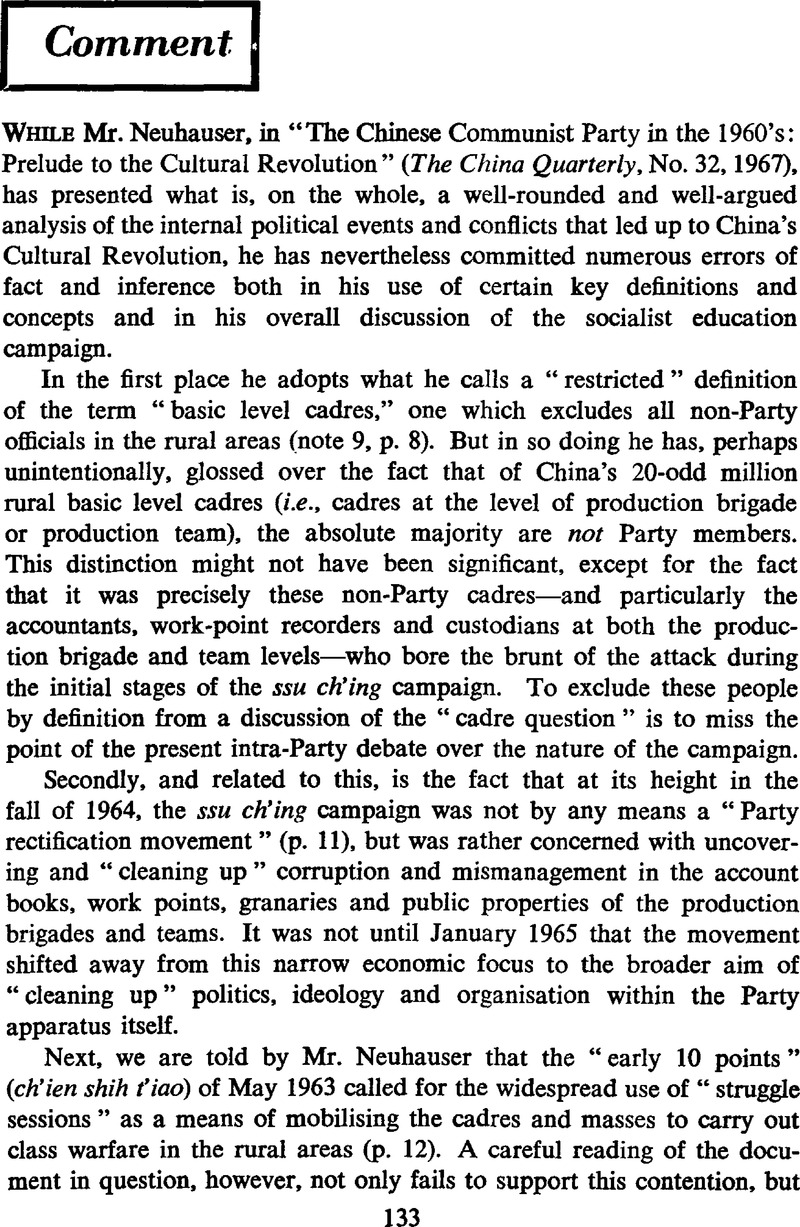No CrossRef data available.

page 134 note 1 See, for example, Radio Kweiyang (kweichow), 4 06 1967Google Scholar ; andHunan Jih-pao.
page 136 note 2 For further documentation on this question, and on the overall implementation of the socialist education campaign, see Baum, Richard and Teiwes, Frederick C., “Ssu Ch'ing”: The Rural Socialist Education Campaign, 1962–1966 (Berkeley: Center for Chinese Studies, 1968)Google Scholar .
page 137 note 3 For a more detailed examination of these charges, see Baum, Richard and Teiwes, Frederick C., “Liu Shao-ch'i and the Cadre Question,” Asian Survey VIII (4), 04 1968Google Scholar .
page 137 note 4 In fact, the very existence of the September 1963 draft has only been mentioned on one occasion in the official Party press. See the People's Daily, 23 November, 1967.
page 142 note 1 Issues and Studies, Vol. I, II and III.
page 142 note 2 Shao-ch'i, Liu, “Self-criticism,” Yomiuri, 12 27, 1966. Liu blames the 1963 draft on P'eng Chen, who by October, when the self-criticism was made, washors de combat. Although other points in Liu's statement have been criticised, I know of no attempts to refute him on this issue. Were P'eng indeed the author, the document would of course be thoroughly revisionist by Cultural Revolution political standards. The reference Mr. Baum quotes attributes the 1963 version to Teng Hsiao-p'ing. In this case I do not think much comfort can be derived from the fact that the word “revisionist ” is not specifically mentionedGoogle Scholar.